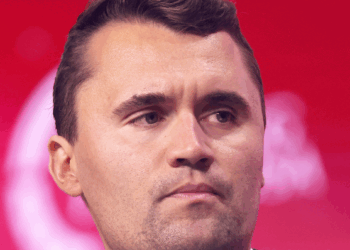Some U.S. elected officials, self-appointed representatives of the American Jewish community and the prime minister of Israel are giving the Obama administration a hard time over its role in an interim deal with Iran to halt that country’s development of a nuclear weapons capability, in exchange for easing up on economic sanctions.
You would think that folks would like the idea of diplomacy carrying the day, but no. Prime Minister Benjamin Netanyahu called last month’s interim deal with the P5+1 world powers and Iran a “historic mistake.” Other critics were quick to “go Hitler,” and brand the agreement tantamount to the 1938 British capitulation to the Third Reich at Munich.
As the AJW was going to press this week, JTA reported that the “historic pact” to freeze Iran’s nukes is not yet in force — “there’s the interim before the interim begins.”
“Little noticed in the wake of the historic pact reached last month by Iran and the major powers is the fact that technically, the deal is not yet underway,” writes JTA’s Ron Kampeas. “A commission of experts from the United States, Russia, Germany, Britain, China and France, working with Iran and the International Atomic Energy Agency, first must work out the technical details before the deal officially goes into effect. The commission is not scheduled to meet until January. And even then it’s not clear how long it might take to reach an agreement.”
No one said this was going to be easy; and this is another wrinkle that will fuel criticism of Obama’s diplomatic effort.
In fact, numerous officials of American Jewish organizations, at both the local and national level, are throwing cold water on the deal. These machers apparently know better than the security officials from the U.S. government, as far as what is needed in a technical regime to monitor Iran’s nuclear facilities and insure compliance with the interim deal.
As for Netanyahu, an unnamed White House official said that the premier’s statements since the interim deal with Iran was signed “indicate a lack of self-confidence. We’re not excited about his vocal opposition,” according to a Channel 10 report that was passed on by Haaretz.
The anonymous official added that the White House believes that Netanyahu will try to scuttle this U.S. policy initiative by appealing to members of Congress; but the Obama administration is not too worried about this ploy.
The attacks from the American Jewish leaders on the P5+1 deal with Iran are notable for their lack of geopolitical awareness. We are assured that this interim deal is an exercise in futility, because the Iranians are sure to cheat, to do whatever they can to get out of the sanctions straightjacket. More nuanced analyses point out that the new Iranian president also faces opposition for engaging with the West from hardliners — sort of the Iranian version of the Tea Party.
Of course, partisan politics plays a role in attacks on the Obama administration’s policy toward Iran. In the case of Democratic criticisms, some elected officials seem to operate on the principle that you can’t be too pro-Israel, in the context of domestic politics. They back whatever government holds the reins of power in Jerusalem. Both Democrats and Republicans tend to go somewhat overboard in “standing” with Israel. They’re more Catholic than the pope, as the saying goes.
Of course, these elected officials take their cues from the leaders of the organized Jewish community.
“On Iran, nearly all the major, old-guard American Jewish organizations have lined up behind Netanyahu,” Jeremy Ben-Ami, executive director of J Street, writes in the Forward this week. “They pushed Congress to enact additional sanctions against Iran before the deal was signed, despite chances that such a move might have torpedoed an agreement — and the international consensus that makes sanctions effective.”
Ben-Ami adds, “They seemed undeterred by the fact that the American people as a whole support a deal with Iran by 64 percent to 30 percent, according to a recent Washington Post/ABC News poll. Many American Jews who take the Iran threat seriously but fear the profound consequences of a military strike undoubtedly find themselves within the ranks of that majority supporting a diplomatic outcome, agreeing with the president’s approach on this important issue rather than with Netanyahu’s.”
The same dynamic applies to another Obama diplomatic effort, mediating an end to the long-running Israeli-Palestinian conflict. This summer, Secretary of State John Kerry succeeded in getting the Israelis and Palestinians back to the negotiating table, with a nine-month time frame for working out a peace deal. On this issue, American Jews overwhelmingly favor the two-state solution; however, Netanyahu faces serious domestic political opposition — even within his own Likud faction — to the creation of a Palestinian state.
“The traditional American Jewish organizations face a dilemma: Do they side unquestioningly on every issue with an Israeli government at odds not just with the American government, but also with the opinions of large numbers of Jewish Americans?” Ben-Ami writes. “Or should they in fact bring to Washington a full representation of the range of views held by their constituency?”
Are we being served well by the leaders of the Jewish community on these critical issues? There should be a local Jewish communal discussion about who is speaking on our behalf and what they’re saying.
— Mordecai Specktor / editor [at] ajwnews [dot] com
(American Jewish World 12.6.13)


















